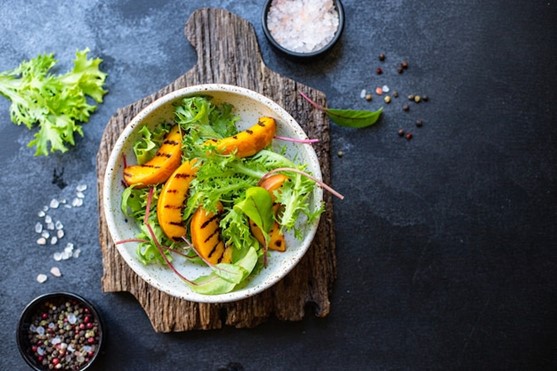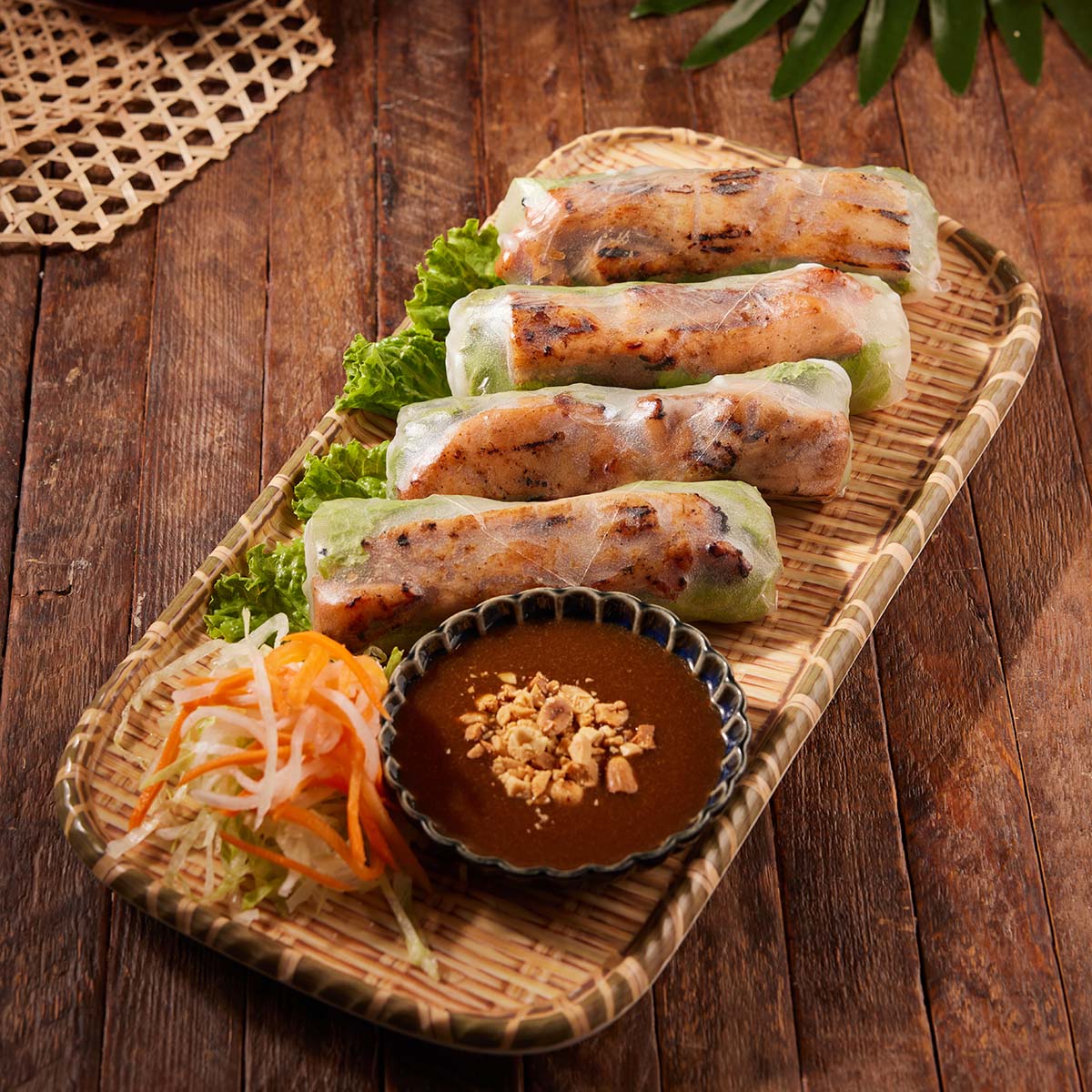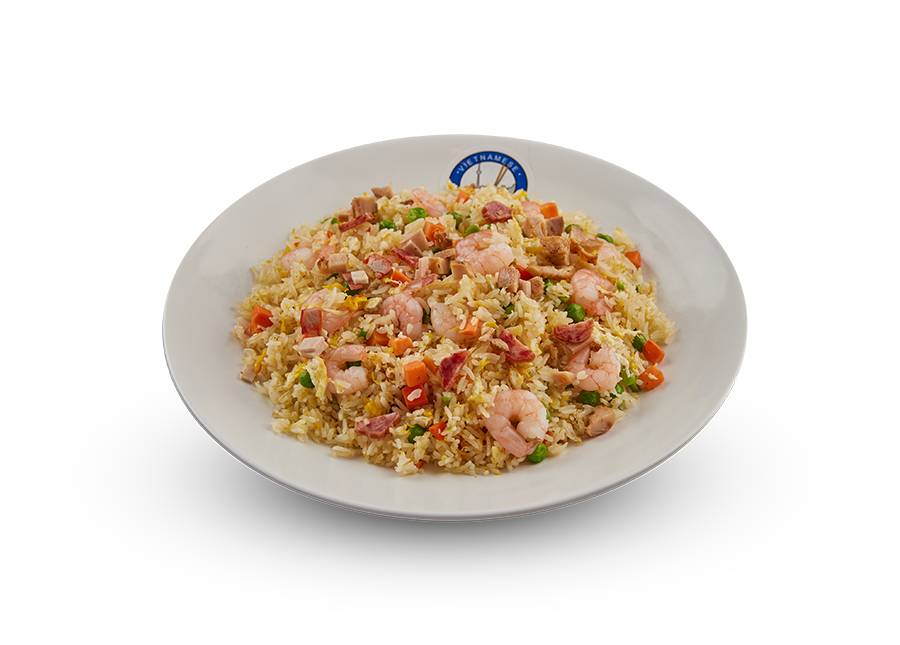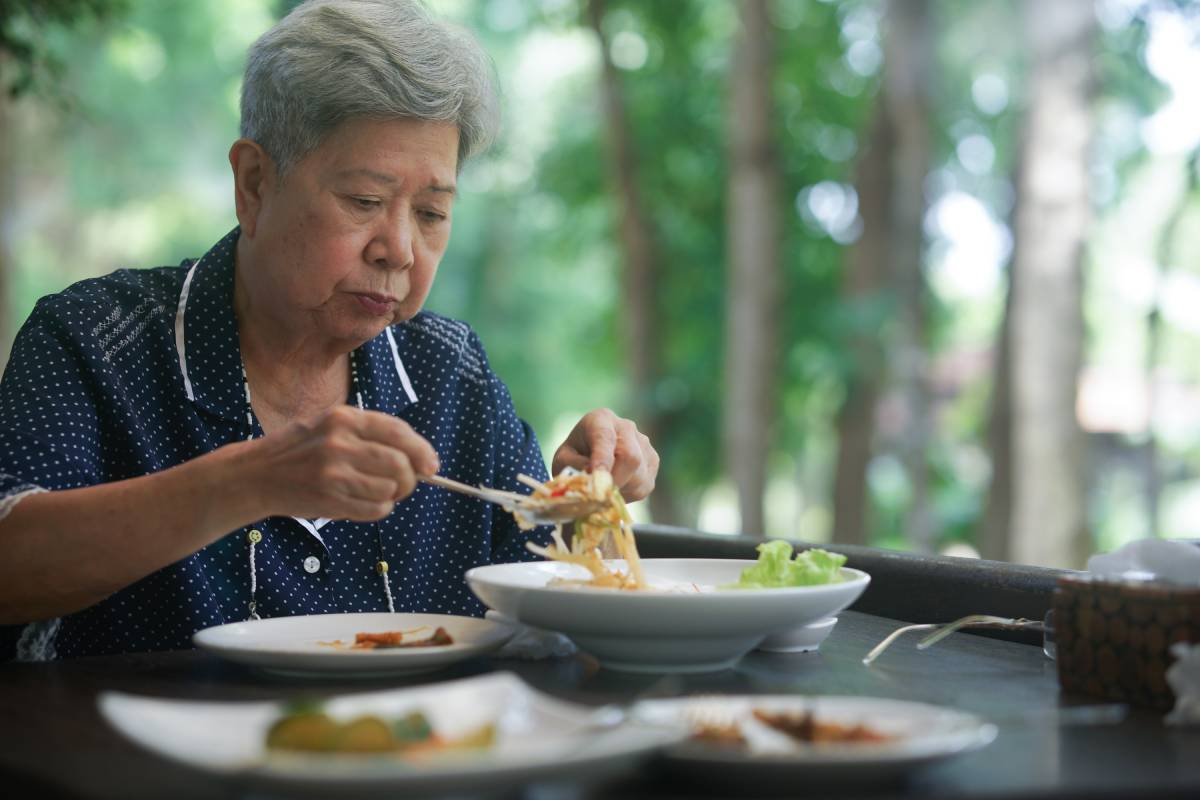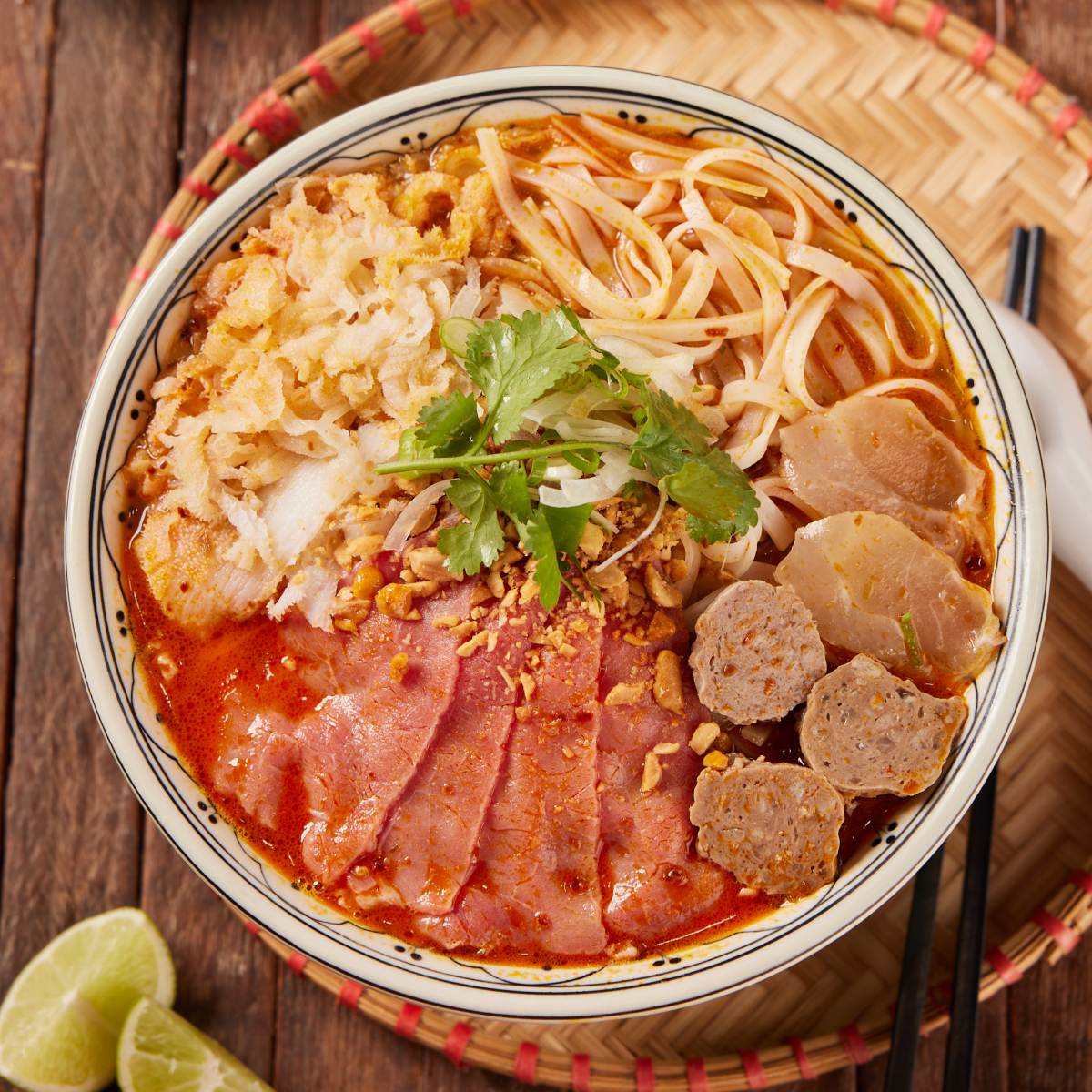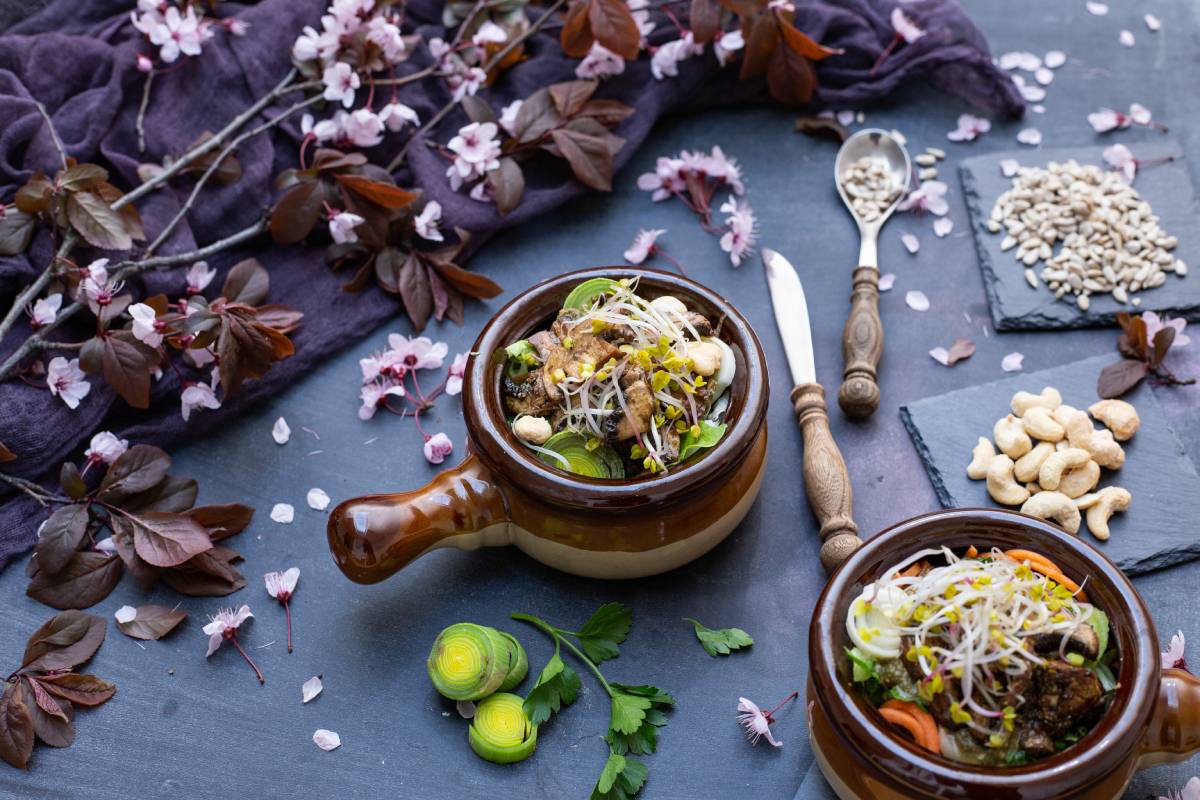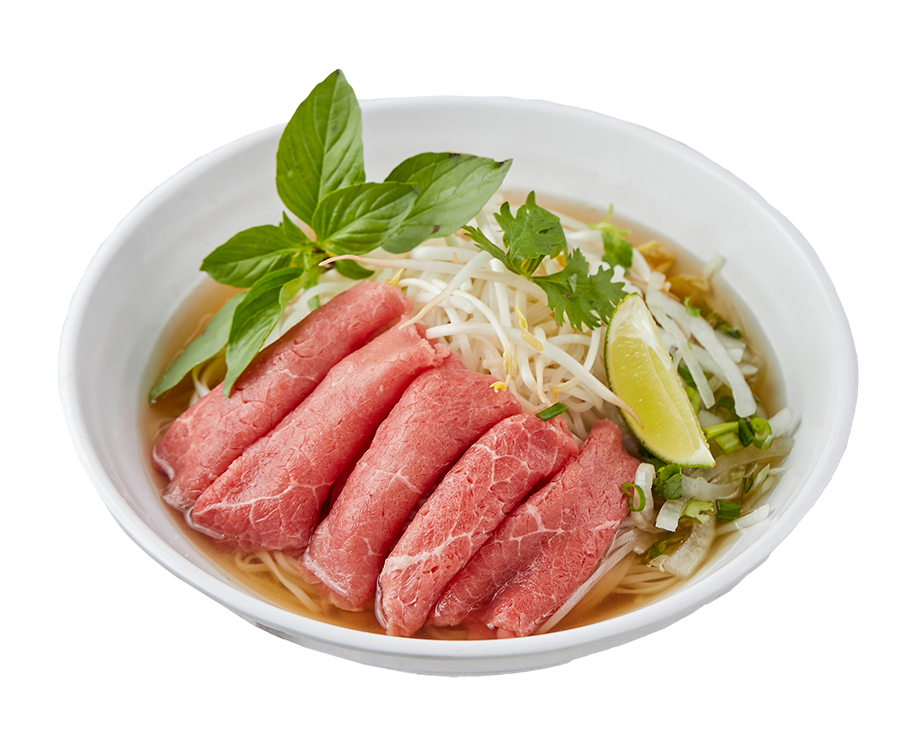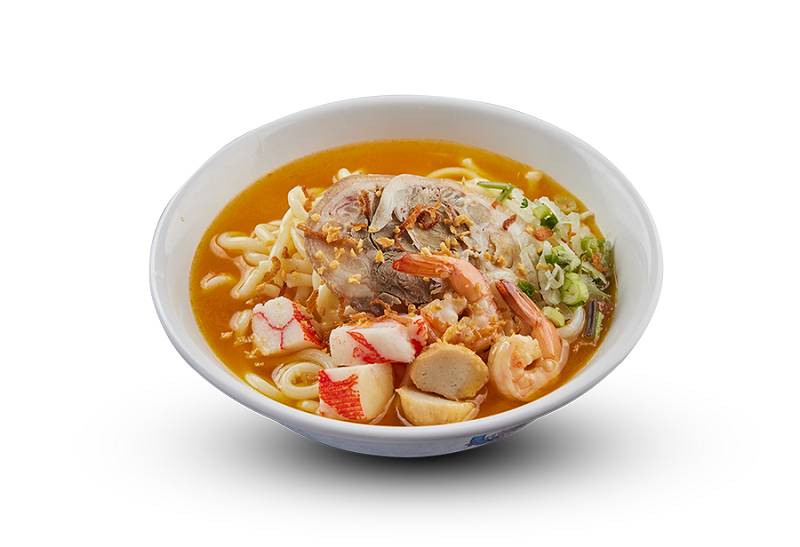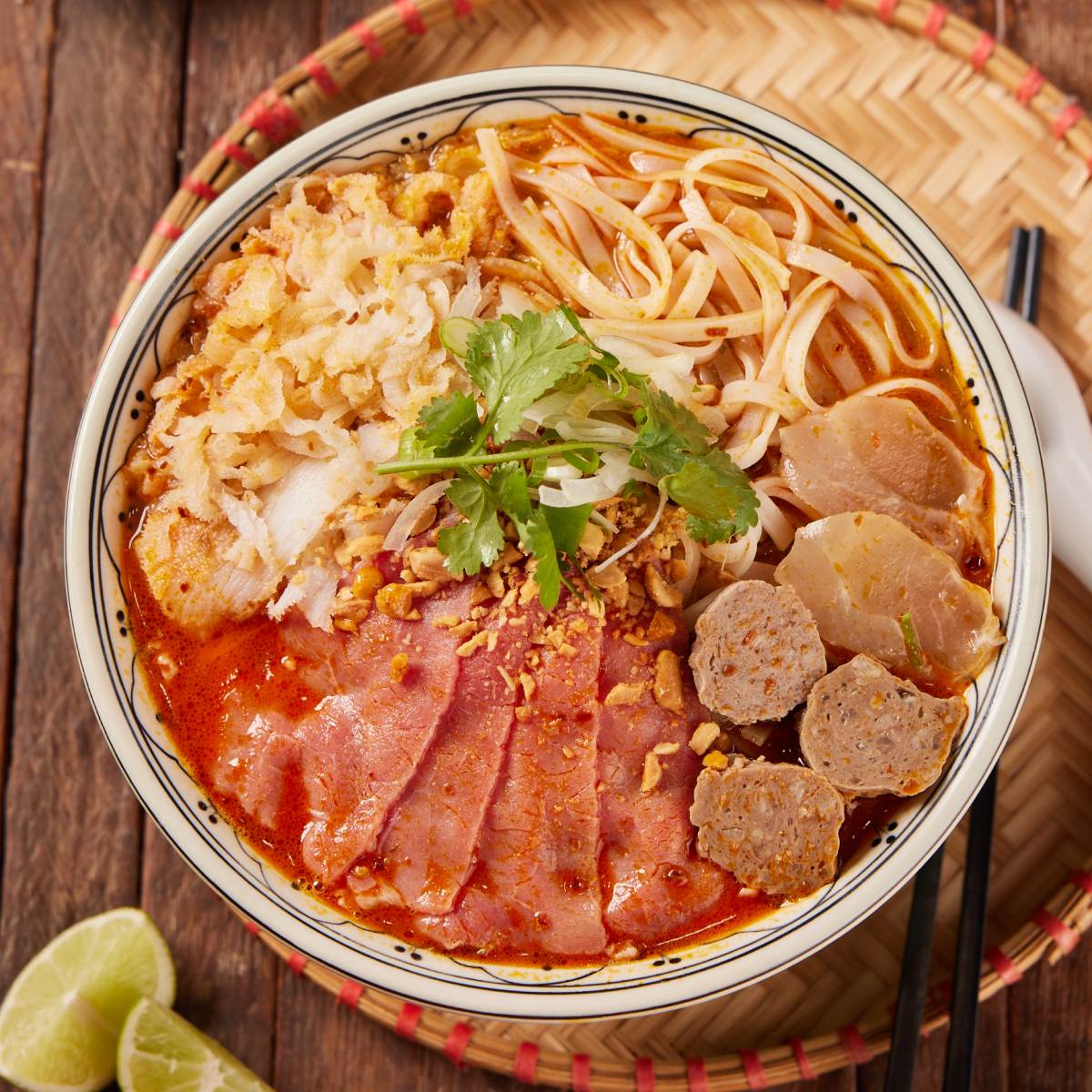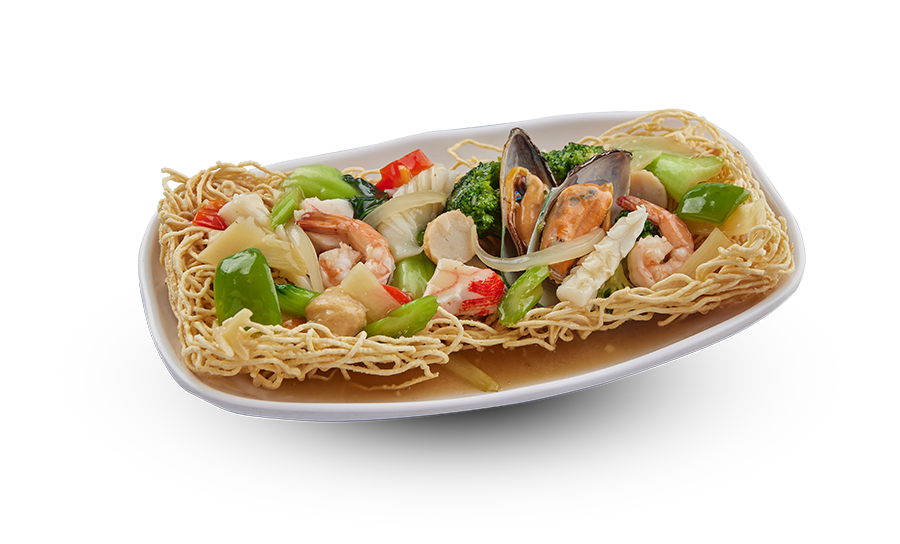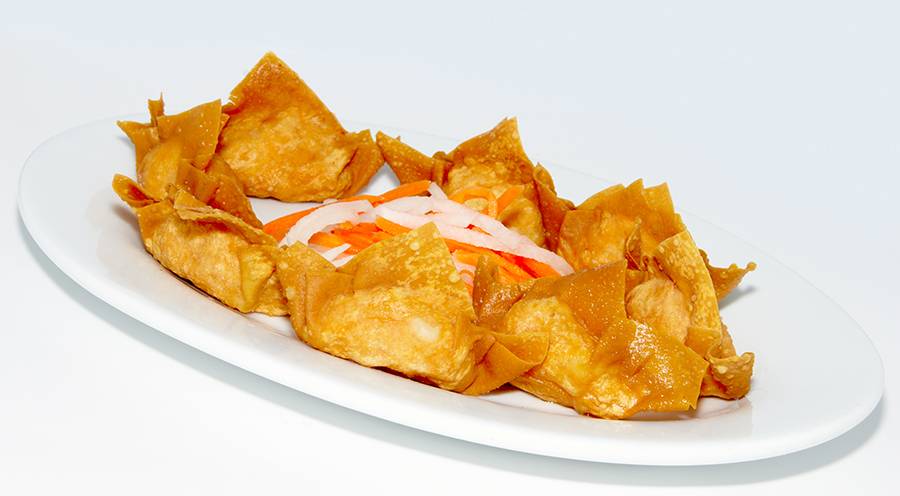Nutritional value of Vietnamese cuisine
Vietnamese cuisine is renowned for emphasizing fresh and natural ingredients, making it a healthy choice for those looking to improve their overall well-being. The foundation of Vietnamese cooking lies in the use of nutrient-rich herbs, vegetables, and lean proteins. Fresh herbs like mint, cilantro, and basil are bursting with flavour and packed with vitamins and antioxidants. These herbs help boost the immune system, reduce inflammation, and aid digestion.
Vegetables play a prominent role in Vietnamese restaurant , providing various health benefits. From crunchy bean sprouts to vibrant carrots and leafy greens, Vietnamese dishes are brimming with colourful vegetables high in fibre, vitamins, and minerals. These vegetables improve digestion, weight management, and increased energy levels. Additionally, the low use of oil in Vietnamese cooking helps maintain the ingredients' nutritional integrity, making it a healthier alternative to other cuisines.
Lean proteins such as fish, chicken, and tofu are staples in Vietnamese cuisine. These protein sources are low in fat and rich in essential amino acids. Fish, in particular, is a great source of omega-3 fatty acids, which are beneficial for heart health and cognitive function. Combining fresh herbs, vegetables, and lean proteins in Vietnamese cuisine creates a well-rounded and nutritious meal.
Health benefits of Vietnamese ingredients
The ingredients used in Vietnamese food are flavourful and provide a wide range of health benefits. Lemongrass, a common herb used in Vietnamese cooking, is known for its anti-inflammatory properties and is often used to alleviate digestive issues. Ginger, another popular ingredient, is known for its ability to boost the immune system, reduce nausea, and relieve muscle pain.
Turmeric, a vibrant yellow spice, is commonly used in Vietnamese dishes and has powerful anti-inflammatory and antioxidant properties. It has been linked to improved brain health, reduced risk of chronic diseases, and enhanced immune function. Including turmeric in Vietnamese cuisine adds a burst of colour and a host of health benefits.
Fish sauce, a staple in many Vietnamese food, is a rich source of vitamins and minerals, including calcium, phosphorus, and iron. It also contains omega-3 fatty acids essential for heart health and brain function. The umami flavour of fish sauce adds depth and complexity to Vietnamese dishes, making them even more satisfying.
Traditional Vietnamese cooking techniques
Traditional Vietnamese cooking techniques play a significant role in preserving the nutritional value of ingredients while enhancing flavours. Stir-frying, steaming, and boiling are common methods used in Vietnamese cuisine, which help to retain the natural nutrients and flavours of the ingredients.
Stir-frying involves quickly cooking ingredients in a small amount of oil over high heat. This technique retains vitamins and minerals in vegetables while creating a delicious and aromatic dish. Steaming is another popular cooking method, particularly for seafood and vegetables. This gentle cooking process helps preserve the ingredients' natural flavours and nutrients, resulting in a healthier and more nutritious meal.
Boiling is commonly used to prepare Vietnamese soups, such as pho. Boiling bones and meat for an extended period extracts the nutrients and flavours, resulting in a nourishing and hearty broth. Slow cooking helps release collagen, minerals, and other beneficial compounds, making Vietnamese soups both delicious and nutritious.
Popular Vietnamese dishes for a healthy diet
Vietnamese cuisine offers a plethora of dishes that are not only delicious but also nutritious. Pho, a traditional Vietnamese soup, is popular with those seeking a healthy meal. Made with a flavourful broth, rice noodles, and a variety of vegetables and proteins, pho is a well-balanced and satisfying dish. It is low in calories, high in fibre, and packed with vitamins and minerals.
Fresh spring rolls, known as "goi cuon," are another nutritious option in Vietnamese cuisine. These rice paper rolls are filled with fresh vegetables, herbs, and protein, such as shrimp or tofu. They are light, refreshing, and contain vitamins, minerals, and antioxidants.
Banh mi, a Vietnamese sandwich, is a fusion of French and Vietnamese flavours. It typically consists of a baguette with various ingredients, including pickled vegetables, cilantro, and grilled meats or tofu. Banh mi can be a healthier alternative to traditional sandwiches, incorporating a balanced combination of vegetables, protein, and whole-grain bread.
Vietnamese herbs and spices for wellness
Vietnamese Food is renowned for its vibrant and aromatic herbs and spices, which add flavour and contribute to overall wellness. Mint, a common herb used in Vietnamese dishes, has been used for centuries for its digestive properties. It helps to soothe the stomach, relieve indigestion, and reduce bloating.
Basil, another popular herb, is known for its antibacterial and anti-inflammatory properties. It is rich in antioxidants and can help to reduce inflammation in the body. The unique basil flavour and aroma add depth to Vietnamese dishes while providing numerous health benefits.
Coriander, also known as cilantro, is widely used in Vietnamese cuisine for its fresh and citrusy flavour. It is rich in vitamins A and K, as well as antioxidants, and can help to promote healthy digestion and detoxification. Coriander adds a burst of flavour and color to Vietnamese dishes while providing a range of health benefits.
Vietnamese soups and their health benefits
Vietnamese cuisine is known for its diverse range of soups, each offering its own set of health benefits. Pho, a popular Vietnamese soup, is delicious and packed with nutrients. The combination of flavourful broth, lean proteins, and fresh herbs and vegetables makes pho a nutritious choice. It is often enjoyed as a comforting meal and is believed to help boost the immune system and aid in digestion.
Bun bo Hue, another Vietnamese soup, is a spicy beef noodle soup originating from the city of Hue. It is made with a flavourful broth, beef, and a variety of herbs and spices. Bun bo Hue is known for its rich and complex flavours and is often enjoyed for its warming and invigorating properties.
Canh chua, a sweet and sour fish soup, is popular in Vietnamese cuisine. Made with tamarind, pineapple, and a variety of vegetables, canh chua is a light and refreshing soup that is packed with vitamins and minerals. It is believed to aid in digestion and promote overall well-being.
Incorporating Vietnamese cuisine into a balanced diet
Incorporating Vietnamese cuisine into a balanced diet is a great way to enjoy delicious and nutritious meals. By focusing on fresh ingredients, lean proteins, and a variety of vegetables, Vietnamese cuisine offers a well-rounded approach to healthy eating.
One way to incorporate Vietnamese food into a balanced diet is to prioritize fresh herbs and vegetables. Adding herbs like mint, cilantro, and basil to salads, stir-fries, and soups can enhance the flavours while providing a range of health benefits. Including a variety of colorful vegetables, such as bean sprouts, carrots, and leafy greens, can help to increase fiber intake and promote overall wellness.
Opting for lean proteins, such as fish, chicken, and tofu, can help to reduce the intake of saturated fats while providing essential amino acids. Grilled or steamed proteins are healthier alternatives to fried options, as they retain their nutritional value without adding excess calories or unhealthy fats.
Choosing healthier cooking methods, such as stir-frying or steaming, can help to retain the nutritional integrity of the ingredients. Limiting the use of oil and opting for natural seasonings, such as herbs and spices, can enhance the flavours without compromising on health.
Vietnamese cuisine for weight loss and management
Vietnamese cuisine can be a great option for weight loss and management, thanks to its emphasis on fresh ingredients and balanced flavours. The use of lean proteins, fiber-rich vegetables, and minimal oil makes it a low-calorie and nutritious choice.
Including Vietnamese soups, such as pho and canh chua, in your diet can help to promote satiety while keeping calorie intake in check. These soups are packed with nutrients, low in calories, and can be enjoyed as a satisfying meal.
Opting for fresh spring rolls instead of fried options can help reduce calorie intake while providing a satisfying and nutritious meal. With a variety of fillings, including vegetables, herbs, and lean proteins, fresh spring rolls are a delicious and healthy alternative.
Choosing grilled or steamed proteins, such as fish or tofu, instead of fried options can help to reduce calorie and fat intake. Grilled meats and tofu are flavourful and satisfying while being lower in calories and unhealthy fats.
Vietnamese vegetarian and vegan options
Vietnamese cuisine offers a wide range of options for vegetarians and vegans, making it a versatile choice for those following plant-based diets. Tofu, tempeh, and a variety of vegetables are commonly used in Vietnamese dishes, providing a good source of protein and essential nutrients.
Pho can be easily adapted to a vegetarian or vegan version by substituting the meat with tofu or a variety of vegetables. The flavourful broth, aromatic herbs, and rice noodles create a satisfying and nourishing meal.
Fresh spring rolls can also be customized to suit a vegetarian or vegan diet by omitting the meat and using tofu or tempeh as a protein source. The combination of fresh vegetables, herbs, and rice paper creates a light and refreshing dish.
Stir-fried vegetables, such as bok choy, mushrooms, and bell peppers, can be enjoyed as a standalone dish or served with rice or noodles. The use of aromatic herbs and spices adds depth and complexity to the flavours.
Conclusion: Embracing the health benefits of Vietnamese cuisine
Vietnamese foods offers a wealth of health benefits, from its emphasis on fresh ingredients to its use of traditional cooking techniques. The combination of vibrant herbs, lean proteins, and a variety of vegetables makes Vietnamese dishes delicious and nutritious. Whether you're looking to boost your immune system, improve digestion, or maintain a healthy weight, Vietnamese cuisine provides a range of options to suit your needs. So, why not embark on a culinary journey and visit Torontopho.com and embrace the incredible health benefits of Vietnamese cuisine?

